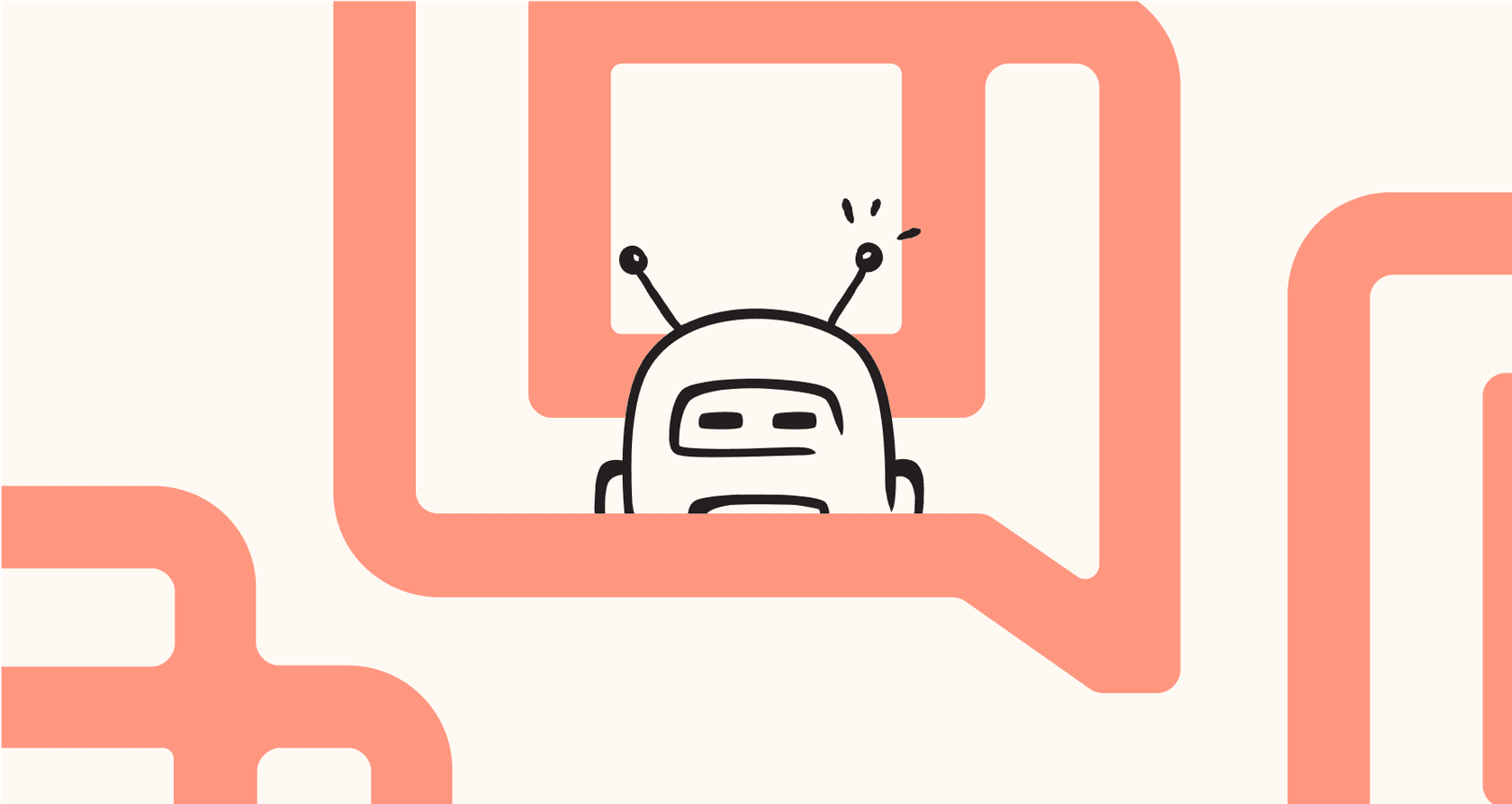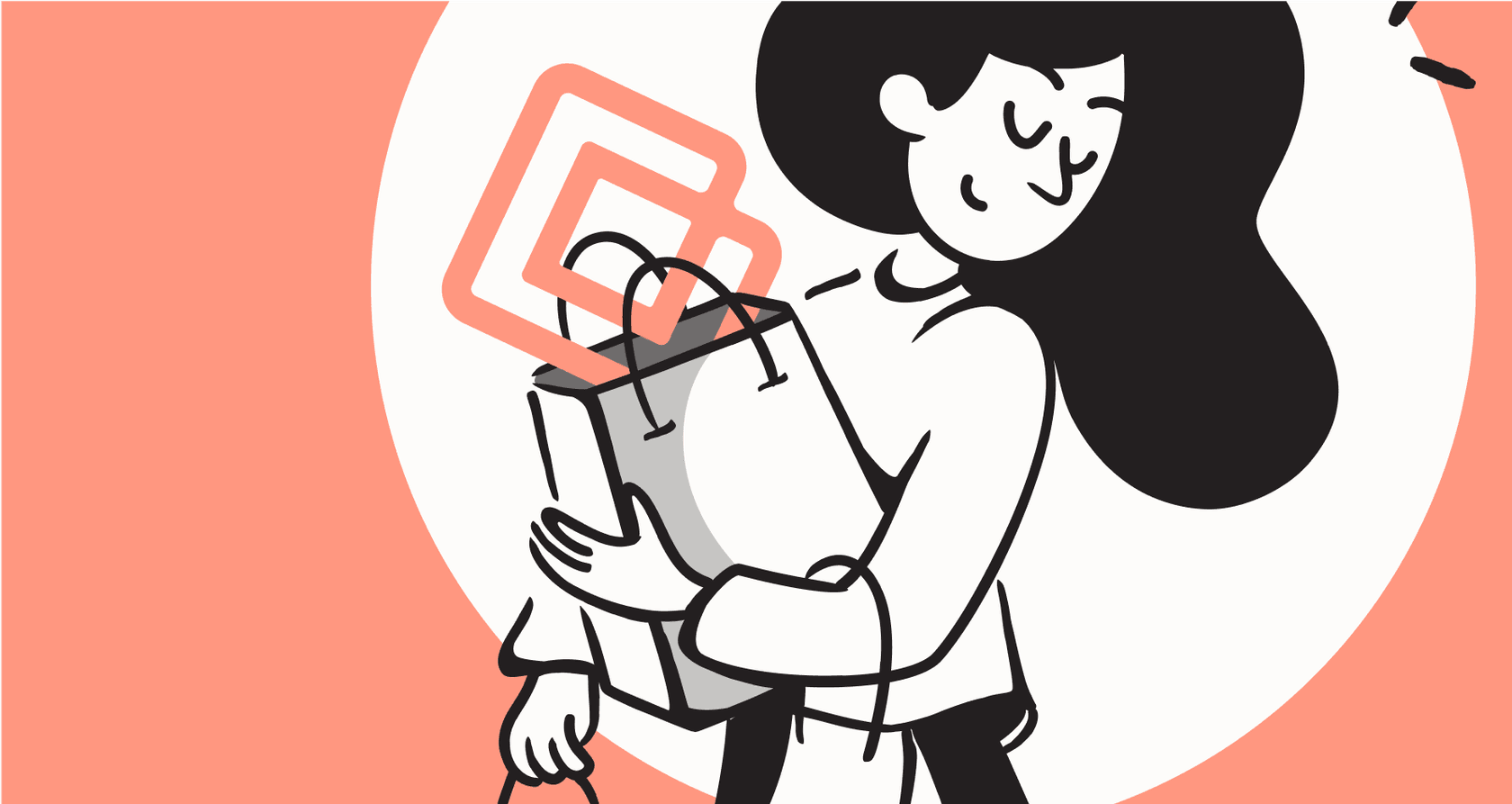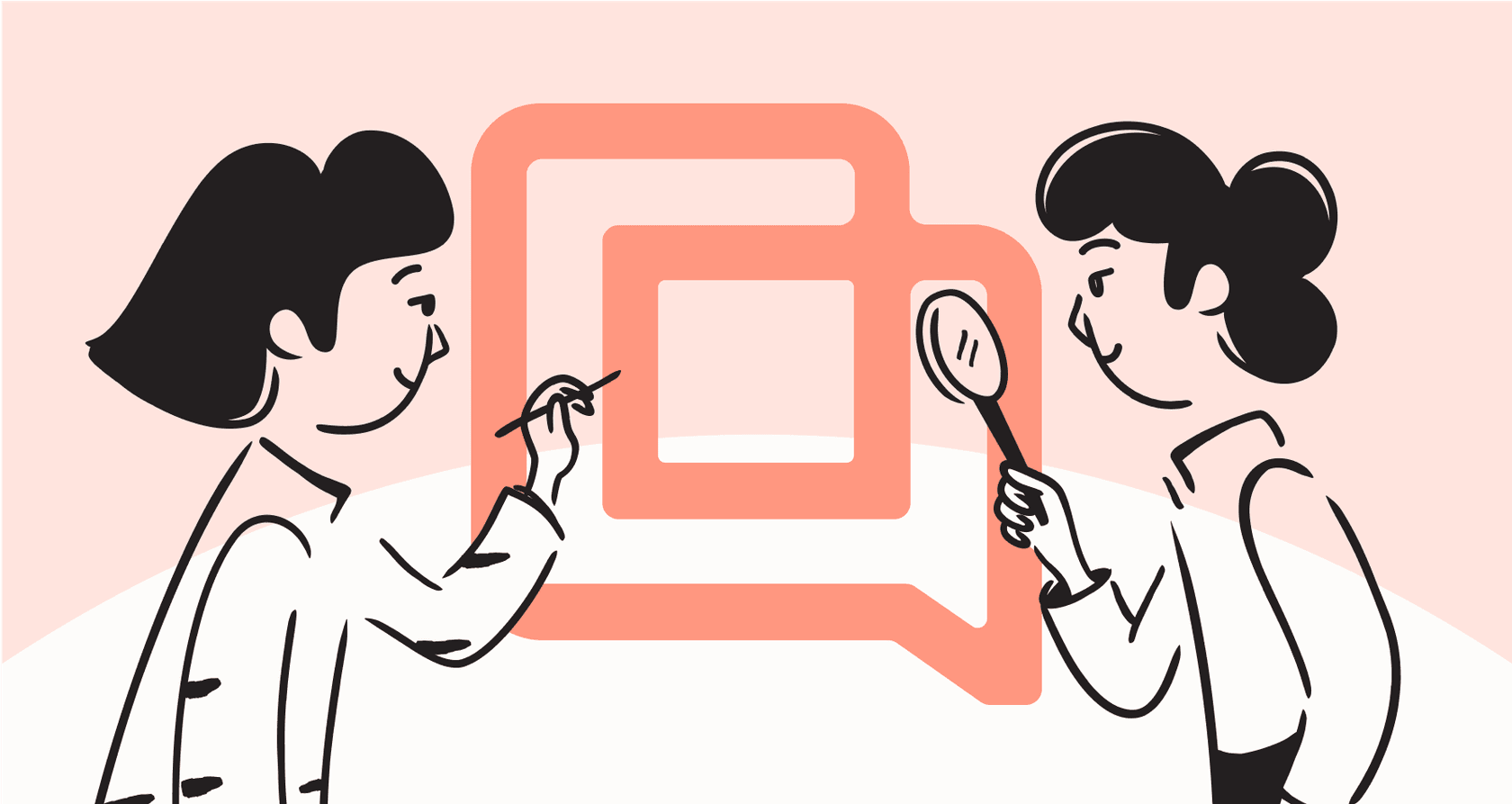Gorgias vs Zoho Desk: Which help desk is right for you in 2026?

Stevia Putri
Last edited January 16, 2026

Picking a new help desk feels like a massive commitment, doesn't it? If you choose well, your support team becomes a well-oiled machine, keeping customers happy and workflows smooth. But if you get it wrong, you're looking at messy processes, stressed-out agents, and a budget that just doesn't make sense.
Two names that pop up all the time are Gorgias, the leading solution for the e-commerce world, and Zoho Desk, the versatile all-rounder. Both promise to make your support life easier, but they come at it from completely different angles. This guide is a straightforward Gorgias vs Zoho Desk comparison, breaking down their key features, how they use AI, and what their pricing means for your bottom line in 2026.
We’ll also look at a complementary way forward: what if you could add a powerful AI brain to the help desk you already use, without having to switch platforms at all? Let's dive in.
What is Gorgias?
Think of Gorgias as the help desk that was born and raised in the world of e-commerce. It’s built specifically for brands on platforms like Shopify, BigCommerce, or Magento. The whole idea behind Gorgias is to flip the script on customer service, turning it from a necessary expense into a way to actually make more money.
It pulls every customer message, whether it’s from email, chat, SMS, or social media, into one clean timeline. But the real game-changer is how deeply it connects to your online store's backend. When an agent gets a message, they don't just see the question; they see the customer's complete order history, shipping status, and every past conversation right there on the screen. This context is gold, allowing agents to give fast, personal answers without having to jump between different tabs.
Gorgias is also loaded with automation tools, like rules and macros, that are designed to instantly answer the most common questions e-commerce stores get all day long. Things like "Where's my order?" or "How do I make a return?" can be handled automatically. If you're a direct-to-consumer brand, Gorgias is built to feel like a natural part of your store.
What is Zoho Desk?
On the other side of the ring, you have Zoho Desk. It’s the jack-of-all-trades in the massive Zoho universe of business apps. While Gorgias is laser-focused on e-commerce, Zoho Desk is built to be flexible, serving all kinds of businesses, from tiny startups to huge enterprises, across pretty much any industry you can think of.
Its biggest selling point is just how much you can customize it and how broad its features are. It handles all the usual channels like email, social, and chat, but also brings phone support into the mix. At its heart is Zia, Zoho’s own AI assistant, who helps with things like figuring out a customer's mood (sentiment analysis), automatically tagging tickets, and pulling up helpful knowledge base articles for your agents.
Because Zoho Desk plays so nicely with other Zoho products like their CRM, it can become the central hub for managing your entire relationship with a customer. If your company is already using other Zoho apps, or if you just need an affordable help desk that you can bend and shape to your will, Zoho Desk has a lot to offer.
A detailed comparison of Gorgias vs Zoho Desk
Alright, we've met the contenders. Now, let's put them head-to-head and see how they stack up in the areas that really matter: AI and automation, integrations, and pricing.
AI and automation capabilities
Both platforms use AI to make your team's life easier, but their approaches are quite different.
Gorgias's approach: Gorgias is all about practical, rule-based automation that solves real e-commerce problems. You set up simple "if this, then that" rules that can fire off automatic replies. For instance, if a message contains the words "order status," Gorgias can automatically pull the tracking info from Shopify and send it to the customer without an agent ever touching the ticket. Its AI can also detect intent and sentiment, meaning it can spot an angry customer or a potential sales lead and prioritize their ticket.
graph TD A[Customer asks "Where's my order?"] --> B{Gorgias rule detects 'order status' keyword}; B --> C[Pull tracking info from Shopify integration]; C --> D[Automatically send tracking link to customer]; D --> E[Ticket is closed without agent intervention];
Gorgias's focus: This is fantastic for straightforward, repetitive questions. For more complex issues, Gorgias provides the tools for agents to jump in easily with full context. Their pricing model for "automated resolutions" is designed to scale with the value delivered by the platform, allowing you to handle volume spikes without necessarily increasing headcount.
Zoho Desk's approach: Zoho Desk gives you Zia, a more generalized AI assistant that does a bit of everything. Zia can read an incoming ticket and automatically tag it based on the topic, analyze the customer’s tone to flag anyone who seems upset, and whisper suggestions from your knowledge base to your agents as they type. It’s designed to be a helpful co-pilot for your support team.
The limitation: Zia is at its most powerful when it's living in the Zoho world. Getting it to learn from knowledge that lives outside of Zoho's own apps can be more involved. All of its intelligence is tied directly to the Zoho Desk platform, meaning your AI configuration is specific to that ecosystem.
| Feature | Gorgias | Zoho Desk |
|---|---|---|
| Primary AI focus | Rule-based e-commerce automation | General-purpose AI assistant (Zia) |
| Key AI features | Intent detection, auto-replies | Sentiment analysis, predictive analytics |
| Knowledge sources | Help center, macros, store data | Knowledge base, community forums |
| Setup complexity | Intuitive, with powerful rule configuration | Can be complex to customize fully |
| Pricing model | Based on automated resolutions and volume | Included in per-agent subscription |
A more flexible approach: If you want to use your preferred help desk while adding a custom-trained AI, an alternative is to use an AI layer that plugs into your existing setup. For example, a tool like eesel AI connects directly to platforms like Gorgias in minutes. It learns from all your past tickets, macros, and external knowledge sources like Google Docs or Confluence. This provides a complementary AI solution that works alongside your help desk.
Integrations and ecosystem
No help desk is an island. It has to connect to the other tools you rely on to run your business.
Gorgias's ecosystem: The Gorgias app library is deep and highly specialized. Its crown jewel is the seamless, native integration with e-commerce giants like Shopify, BigCommerce, and Magento. It also has a solid network of connections to other popular e-commerce apps for things like customer reviews, loyalty programs, and shipping logistics.
Commerce-driven focus: Gorgias focuses its power on commerce-driven data. If your company's internal policies or troubleshooting guides are documented in wikis like Notion or Confluence, you may want to use a complementary tool to bring that information into your workflow. Gorgias is built to be the best for store data, and it excels in that arena.
Zoho Desk's ecosystem: Zoho's ecosystem is incredibly wide-ranging, especially when you go all-in on the Zoho suite. It connects perfectly with Zoho CRM, Zoho Analytics, and dozens of other family members. It also has a marketplace with plenty of integrations for third-party apps like Slack and Salesforce.
The limitation: The trade-off is that Zoho Desk is most seamless when used with other Zoho products. If your company's information is scattered across many different non-Zoho platforms, you'll need to spend a bit more time setting up those connections to ensure a unified workflow.
Unifying your knowledge: Instead of choosing a help desk based on where your documentation lives, a tool like eesel AI acts as a bridge. It connects to over 100 different sources, letting you train a single AI agent on everything from Confluence to Google Docs and past tickets. That unified knowledge can then power your support automation within your chosen help desk.
Pricing and scalability
A great platform is most effective when its pricing model matches your business growth.
Gorgias's pricing model: Gorgias's pricing is structured to scale with your business based on the number of tickets your team handles each month. This includes interactions handled by agents and your automations.
- Full pricing breakdown (billed monthly):
- Starter: $10/month (50 tickets)
- Basic: $60/month (300 tickets)
- Pro: $360/month (2,000 tickets)
- Advanced: $900/month (5,000 tickets)
- Enterprise: Custom
The scalability factor: This pricing model is designed for flexibility. If you hit a busy season or a promotion goes viral, Gorgias allows you to scale up your capacity. The automated resolutions feature ensures that you only pay for the value the platform delivers, providing a clear way to manage costs as your volume increases.
This overview compares some of the best help desk software options available, including both Gorgias and Zoho Desk.
Zoho Desk's approach: Zoho Desk uses a per-agent, per-month subscription model. They also have a generous free plan for teams of up to three people.
- Full pricing breakdown (billed annually):
- Standard: $14/agent/month
- Professional: $23/agent/month
- Enterprise: $40/agent/month
The scalability factor: The costs here are predictable and scale with your headcount. Hire more agents, and your bill goes up by a fixed amount. If you want to unlock Zia's most powerful AI features, you'll generally need to move the entire team to the Enterprise plan, which is a consideration for growing teams.
A transparent alternative: Many built-in AI tools have specific pricing structures. eesel AI offers a clear, flat monthly fee for a set number of AI interactions. There are no per-resolution fees to worry about, providing a predictable way to scale your AI automation alongside Gorgias or Zoho Desk.
Making the right choice for your team
So, in the Gorgias vs Zoho Desk comparison, who wins? The answer depends entirely on your business needs.
Gorgias is the undisputed leader for e-commerce brands, particularly those on Shopify, that want a powerful, integrated platform to drive customer happiness and sales. Zoho Desk is a fantastic, flexible choice for businesses that need an all-purpose help desk, especially if they are already invested in the Zoho ecosystem.
Both platforms are industry-leading solutions. If you are happy with your current help desk but want to enhance it with powerful, flexible AI, you can do so without switching your entire system.
eesel AI offers a complementary way to upgrade. It works within the tools you already use, pulling together your company knowledge to automate support with a pricing model that is easy to manage. You can get it running in minutes and use a simulation mode to test it out before it ever talks to a customer.
Ready to see how you can enhance your support workflow? Start your free eesel AI trial today.
Frequently asked questions
Gorgias is purpose-built for e-commerce, offering deep integrations with platforms like Shopify to provide agents with full customer order history and shipping status. Zoho Desk is a versatile generalist, customizable for various industries, making it a flexible choice for teams with broader needs.
If you're already in the Zoho ecosystem, Zoho Desk integrates seamlessly with other Zoho products like CRM and Analytics. However, Gorgias remains the gold standard for e-commerce-focused workflows where deep store integration is the priority.
Gorgias offers a specialized automated resolutions pricing model, meaning you pay for the value and efficiency the automation provides. Zoho Desk includes its Zia AI assistant in per-agent subscriptions, though unlocking the most advanced features requires higher-tier plans for the entire team.
Gorgias excels at integrating with e-commerce platforms and related apps, focusing its power on store-related data. Zoho Desk integrates best within the broader Zoho suite. For both platforms, using a complementary tool like eesel AI can help bridge the gap to external knowledge sources like Notion or Confluence.
Gorgias's ticket-based pricing is designed for flexible scaling, allowing teams to match their investment with their volume. Zoho Desk offers predictable per-agent pricing, though upgrading for advanced AI requires a plan increase across the entire team.
An alternative is to use a complementary AI layer like eesel AI. It plugs into your existing help desk, learns from all your knowledge sources, and offers predictable, flat-fee pricing without requiring you to switch platforms.
Share this post

Article by
Stevia Putri
Stevia Putri is a marketing generalist at eesel AI, where she helps turn powerful AI tools into stories that resonate. She’s driven by curiosity, clarity, and the human side of technology.





